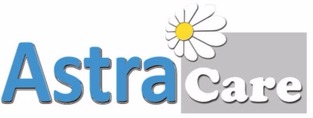There’s no place like home. The scents, the colors, the memories, home is where we feel most comfortable and, often times, it’s where we are the happiest. This is true at any age but for seniors, it’s especially true. Whether you are recovering from an illness or entering your elderly years, we all want to main the sense of normalcy that being at home brings. However, as get older, we may need more help than we once did. Home healthcare, including companion care, is one way to get the help we need in the place in which we are most comfortable. For some though, the idea of having a stranger come to their home brings a certain level of trepidation. This is natural, but it is important to examine some of the commonly held beliefs about home health care and understand why they are not true. It’s with that knowledge that seniors and their families can make informed decisions about home health care.
Here are six common misconceptions about home health care and specific reasons why they are inaccurate:
- Fraud and abuse is rampant in the home healthcare industry: This could not be further from the truth. Cases of abuse in the home healthcare industry are reported by the media because they aren’t prevalent and, thus, considered newsworthy. Most agencies, including AstraCare, do extensive and thorough background checks on all employees and only hire professionals who are licensed and certified to work with those in need. Also, your loved one has complete control over who comes to their home. Agencies typically work with you to determine the best match for your needs and lifestyle.
- Home Healthcare is an expensive option: The opposite is true. Home healthcare is actually one of the most affordable options for those in need. The average nursing home stay costs between $6,500-7,500 per month and a hospital stay cost nearly $2,000 per night. Costs for home healthcare vary among agencies but are generally much more affordable. There are also more flexible as home healthcare professionals can work with you for a few hours a week or provide 24-hour care.
- Home Healthcare is limited to medical care: Home care consists of two categories, medical care, which is administered by a nurse or a therapeutic professional, and non-medical home care, which is administered by a professional caregiver. Medical professionals can come into the home and provide medical care as well as therapy services, including speech and physical therapies. Professional caregivers provide aid with activities of daily living, including cooking, bathing and driving. Both medical and non-medical care can be administered as a respite service as well, providing a much-needed break to voluntary caregivers.
- Seeking home healthcare services for a parent is a sign of disrespect: There are some people who feel that if they seek help for a family member that they have shown a lack of respect for that person’s ability to take care of themselves. Some people also feel that able-bodied family members are the only ones that should take care of family members in need. However, seeking home healthcare services for a loved one shows a greater sense of care for that person and the recognition that best way to preserve their dignity and health is to seek a little help. The decision is never easy but home healthcare professionals are trained to help those need and guide them in living the best life possible.
- Extensive medical care cannot be provided in the home: Agencies, including AstraCare, have certified Licensed Practical Nurses (LPN’s), Registered Nurses (RN’s), Certified Nursing Assistants (CNA’s) and Home Health Aides that are highly qualified and dedicated to providing comprehensive care.
- Home healthcare must be arranged in advance: In many cases, home health care can be arranged on short notice. It’s just a matter of making the call.
We hope that we’ve cleared up a few misconceptions about home health care. The most important thing to remember is that the care you receive is of the highest quality in the most comfortable setting.
AstraCare’s in-home health care professionals can provide a variety of services including 24-hour care, medication management, and respite care. To learn more, visit our contact us page or call us at (844) 811-4401.


South Florida's Premier In-Home Care